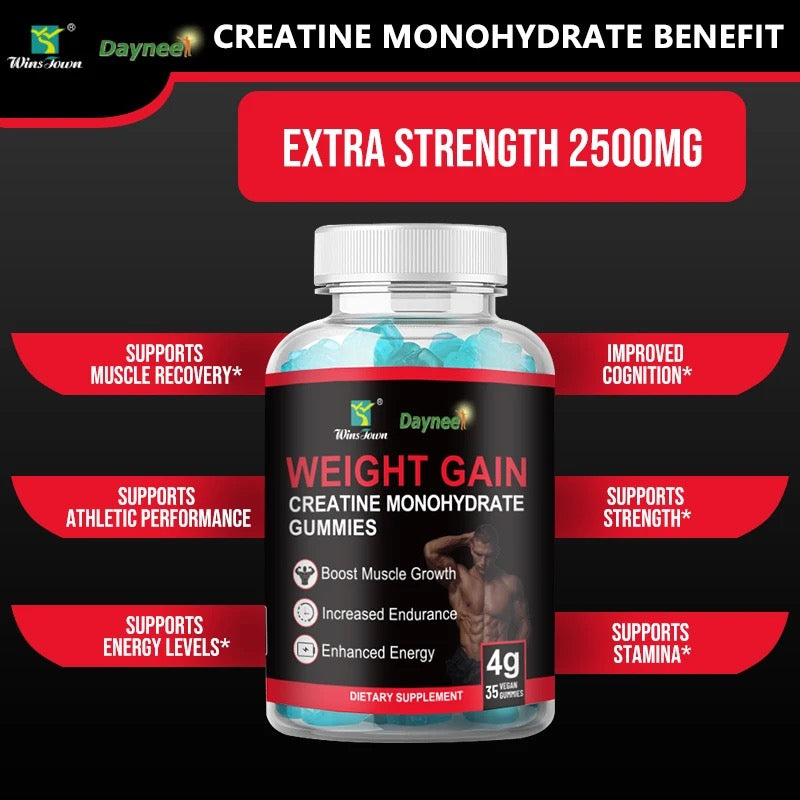Creatine Monohydrate Fundamentals Explained
Creatine Monohydrate Fundamentals Explained
Blog Article
Indicators on Creatine Monohydrate You Should Know
Table of ContentsThe smart Trick of Creatine Monohydrate That Nobody is Discussing9 Easy Facts About Creatine Monohydrate ExplainedCreatine Monohydrate Can Be Fun For Everyone
The authors recognize a danger of bias with the research study layouts due to a requirement for more clarity over randomization with virtually all researches consisted of. Only 3 of the nineteen research studies completely detailed the assessment of VO2 max.
This varies from athlete to athlete, though. If weight gain via fluid retention is a problem, quit taking creatine 1-2 weeks prior to racing to offset liquid retention while preserving raised creatine shops. Some people experience intestinal discomfort when taking creatine, such as bloating, cramping, or looseness of the bowels. It is very important to note that not everybody experiences gastrointestinal distress while taking creatine, and it can usually be handled by changing the dosage or taking it with meals, as detailed by the International Culture of Sports Nourishment.
It's recommended to utilize it in powder form. Problems about the long-term effects of creatine monohydrate supplementation on renal (kidney) feature have actually been raised. Researches done by the International Society of Sports Nourishment and Sports Medication program that temporary and long-lasting use of creatine monohydrate within suggested dosages does not take the chance of kidney function in healthy individuals.
Some Known Details About Creatine Monohydrate
None of the studies examined triathletes. The damaging effects reported in the studies connected to weight gain. As mentioned, most of the studies utilized a higher-dose loading method (20g+/ day) in a brief period that can be offset and stayed clear of with a reduced dose (such as 5g/day) for an extensive period.
:max_bytes(150000):strip_icc()/Health-BenefitsofCreatine-Horizontal-V5-e6123e44efe94d8ab2d1544dcb6a1ad5.jpg)
Allow's consider the main advantages of creatine monohydrate. There is strong, reputable research showing that creatine improves health and wellness. Overwhelming evidence sustains boosting lean muscle mass, boosting strength and power, including repeatings, minimizing time to exhaustion, enhancing hydration condition, and benefiting brain health and function. Every one of these advantages will incrementally reward your wellness and improve your "healthspan" as you age.
et al. (2008, July). Putting to relax the myth of creatine supplementation bring about muscle aches and dehydration. Obtained from https://pubmed.ncbi.nlm.nih.gov/18184753/Eventbrite Record.(2014). Endurance Sports Participant Research Study. Gotten from https://eventbrite-s3.s3.amazonaws.com/marketing/britepapers/Endurance_Report_Survey.pdf!.?.!Fernndez-Landa, J. et al.(2023, May). Results of Creatine Monohydrate on Stamina Performance in an Educated Population: A Systematic Testimonial and Meta-analysis. Dear Reader: Creatine their website is an organic substance that the body counts on for a constant supply of power to the muscles. It is particularly helpful throughout brief ruptureds of intense, anaerobic activity, such as when raising weights or running a short distance. Creatine is manufactured by the body from a trio of amino acids, mainly by the liver. The compound also is offered from dietary sources, mostly red meat, fish and shellfish and hen (Creatine Monohydrate). Most of creatine is kept in the skeletal muscle mass in a type understood
Creatine Monohydrate Things To Know Before You Buy
as phosphocreatine, or creatine phosphate. A little quantity, less than 5%, is found in the tissues of the mind and testes. Creatine help in the production of adenosine triphosphate, or ATP. Scientists have actually located that when someone takes creatine supplements while engaged in a program of resistance training, such as weightlifting, it can help to build lean body mass. Added research studies into the possible wellness benefits of creatine supplements recommend it may my company boost specific blood lipid levels, aid in keeping skin flexible and healthy and balanced, help in some signs of Parkinson's condition and rate healing from muscle mass overuse and tiredness. A healthy and balanced individual with a well balanced diet plan that consists of red meat, poultry and seafood will certainly obtain an appropriate supply of creatine. Nevertheless, study shows that supplements can be valuable in making athletic gains. Some studies have actually discovered that making use of a creatine supplement can assist construct muscular tissue mass and enhance toughness. When taken in big amounts, some people do report experiencing gastric troubles. As with any type of nutritional supplement, it is essential to chat to your health treatment provider before including creatine to your day-to-day routine. There are several sorts of creatine supplements, which are available in a vast range of dosages. Your doctor will certainly help you evaluate your goals and can guide you in selecting he has a good point the appropriate supplement for your requirements.(Send your concerns to [email safeguarded], or compose: Ask the Physicians, c/o UCLA Wellness Sciences Media Relations, 10960 Wilshire Blvd., Collection 1955, Los Angeles, CA, 90024. Countless individuals take multivitamins daily, in spite of hills of evidence revealing they don't improve health and wellness significantly. Most would be better off taking creatine monohydrate. Yes, creatine is a wellness supplement. The majority of people, around 69%, are actually creatine deficient. Even if they never ever raised a weights, they 'd still gain from creatine supplements.
Report this page